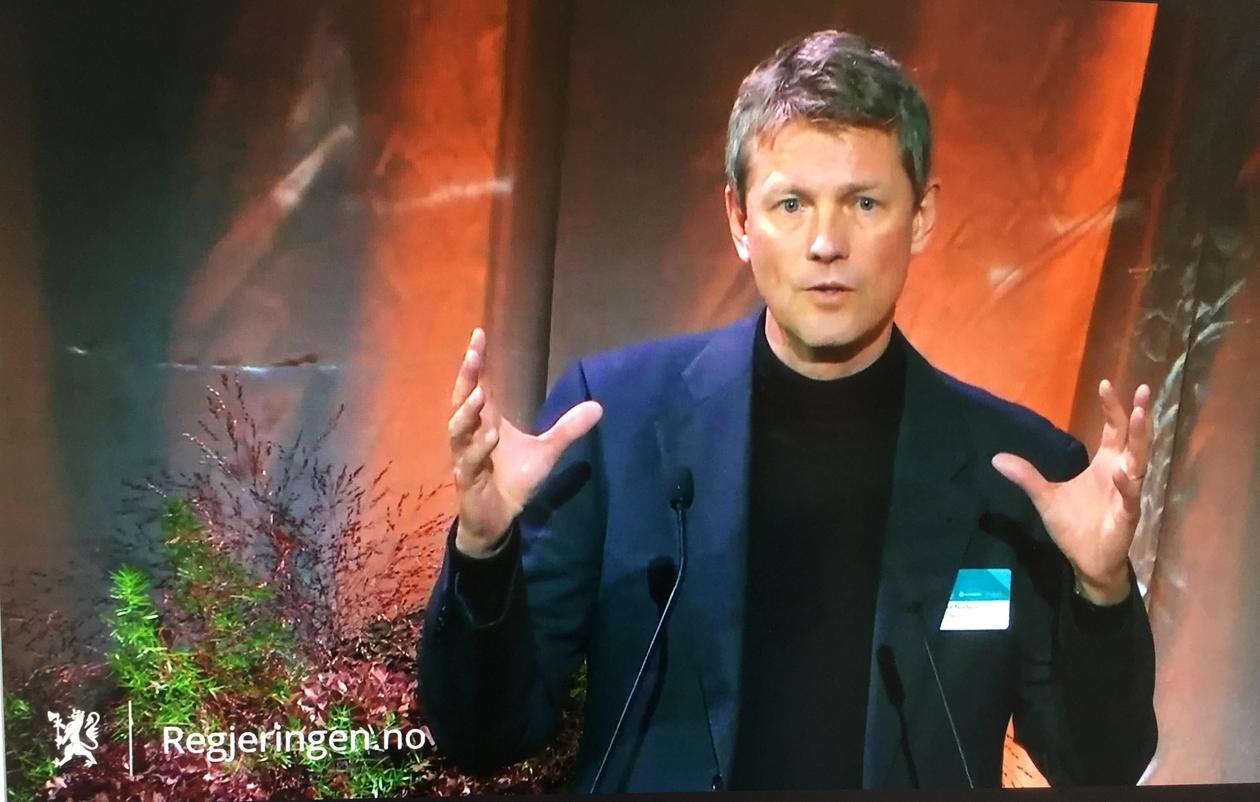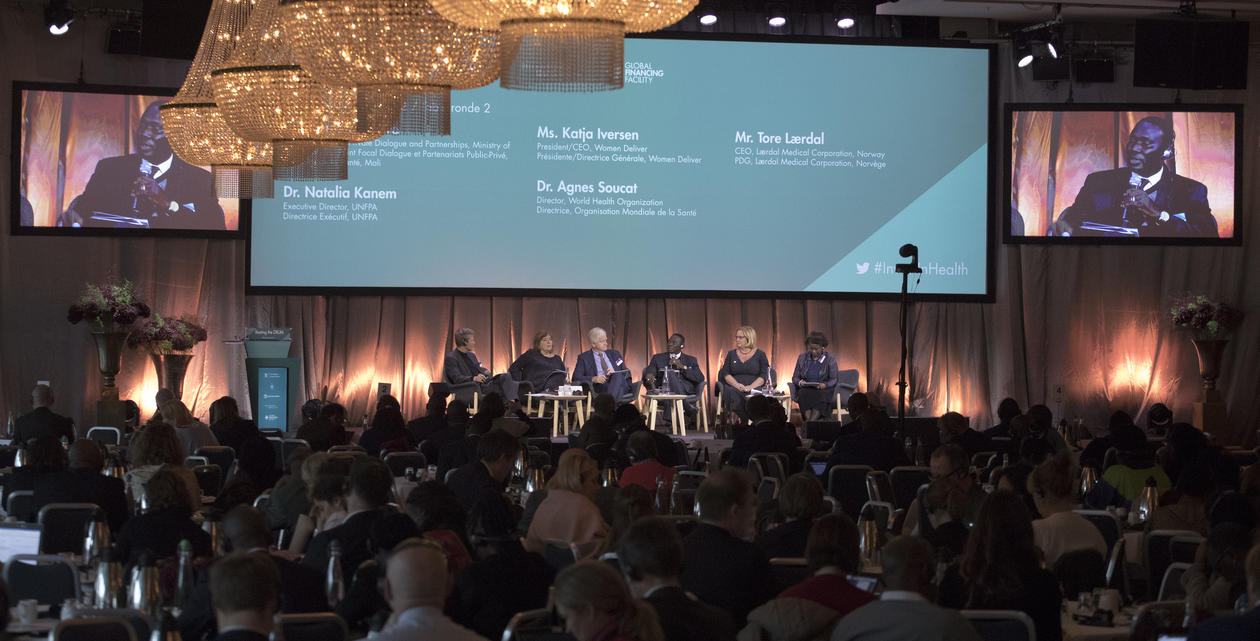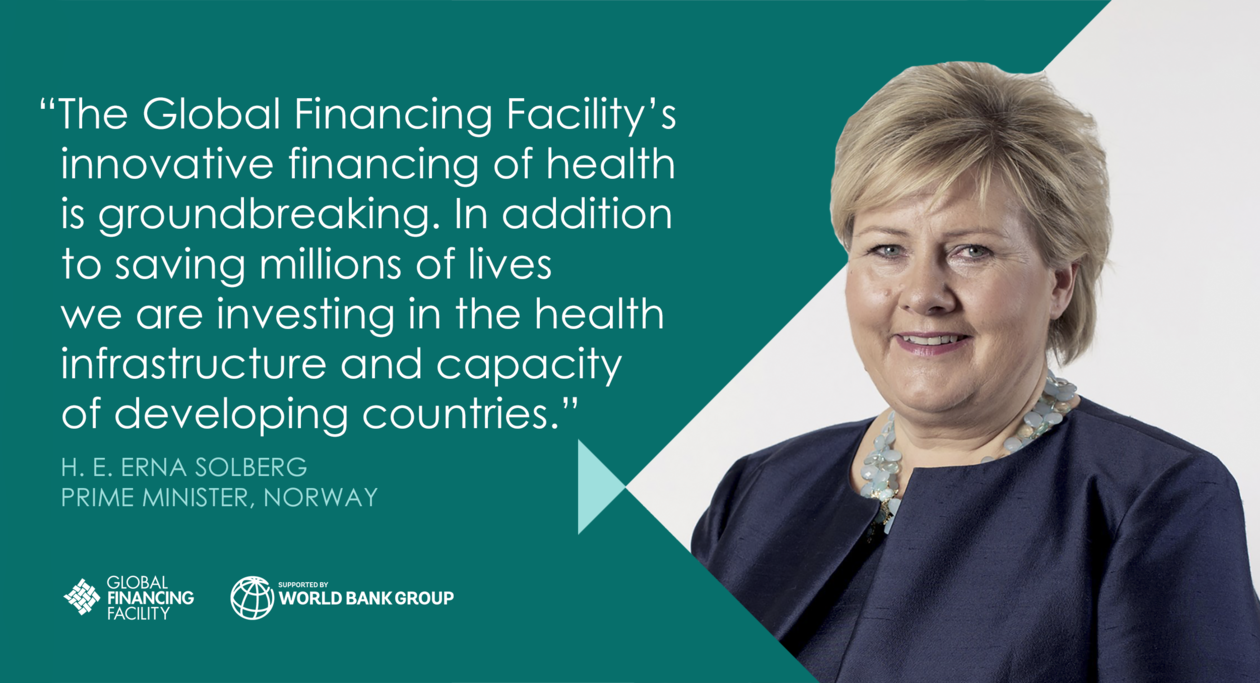Professor Ole Frithjof Norheim leading discussion at international GFF event
The international event "Beating the DRUM" co-hosted by Norwegian government focused on domestic resource use and mobilization for accelerating progress towards SDG3. It featured roundtable discussions about increasing public-sector revenue to improve health in an efficient and equitable way. Norheim, director of the Global Health Priority Research Group, was the moderator of one of these discussions.

Main content
The event (Beating the DRUM) took place November 5 as a preliminary day to the Global Financing Facility (GFF) replenishment conference and was hosted by the Governments of Norway and Burkina Faso, the World Bank Group, and the Bill & Melinda Gates Foundation.
The GFF replenishment conference will support the GFF’s expansion towards 50 countries with the highest mortality burdens and health and nutrition needs. The GFF partnership can support countries to transform how they invest in and finance the health of women, children and adolescents, and can contribute to saving as many as 35 million lives and mobilizing an additional US$75 billion by 2030. US$1 billion dollars has already been promised during the conference!
Leading experts and politicians from around the world were present at the event . Nikolai Astrup, Minister of International Development gave the welcoming remark, followed by the keynote delivered by Dr. Tedros Adhanom, Director-General in the World Health Organisation. A range of international experts and global health leaders were taking part in panels and discussions on how to spend money better to achieve more efficient and equetable healthcare.
Norheim moderated one out of three roundtable discussions. The objective of this discussion was to highlight country experiences in improving the efficiency of spending: doing the right things in terms of priority setting between levels of care and between programs (financing and improve UHC outcomes). The other central objective was equity: how to raise and spend revenues equitably to improve health and provide risk protection of the poor. In addition, questions about private sector-led innovation and financing were raised.
Participants:
- Dr. Moussa Yattara, Focal Point Public-Private Dialogue and Partnerships, Ministry of Health, Mali
- Dr. Natalia Kanem, Executive Director, UNFPA
- Ms. Katja Iversen, Director Women Deliver
- Dr. Agnes Soucat, Director, World Health Organization
- Mr. Tore Lærdal, CEO, Lærdal Medical Corporation, Norway
When introducing the discussion, Norheim gave a strong message on behalf of low-income groups in developing countries:
- We need to get rid of out-of-pocket payments, or reduce them to a minimum. They are unfair, inefficient and they can push people into poverty.
Hear Norheim's presentation and the engaging discussion that followed: LIVE BROADCAST.



